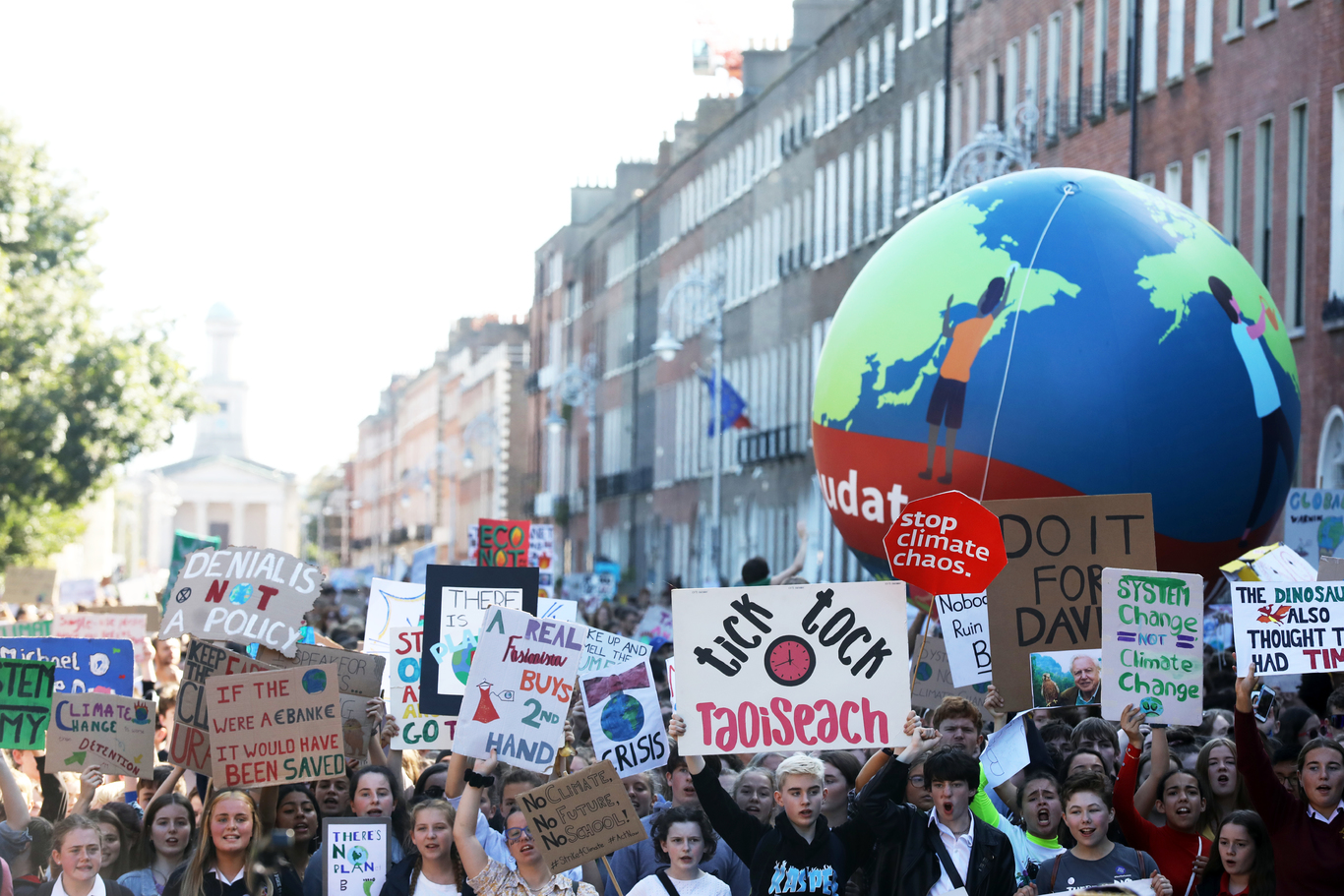Revenue from the carbon tax should be invested entirely in climate action measures
Carbon taxes are expected to generate €500 million in 2020.
THE CLIMATE ACTION Plan, launched earlier this year, included ambitious targets which will require significant funding if they are to be implemented.
The government promised that rapid action on climate change was coming but unfortunately the underwhelming provisions in this budget means that 2020 will be another lost year for climate action.
Even though the risks associated with Brexit are enormous, this budget was an opportunity for the government to show how seriously it is taking the implementation of the climate plan.
Next year will see carbon taxes generate over €500 million in revenue. By ring-fencing a small portion of this revenue, and by dividing it up into a few micro-projects in a small number of constituencies, the government risks losing the public’s support for the tax.
These small steps mean that when changes are eventually made, they will have to happen over shorter time frames, leading to greater economic friction, and consequently to greater social costs.
As a small country with enormous green energy resources, especially when it comes to wind energy, Ireland should be leading the charge in adapting to a green economy; few countries have as much to gain.
But instead, we lead the league tables on our greenhouse gas emissions per head of population, the poorest air quality, and the least amount done in tackling climate change. Among the EU countries on the Climate Change Performance Index, we rank 28 out of 28.
Changing behaviour
The objective of carbon tax is to change behaviour. The problem with this approach is that in most parts of the country, alternatives to carbon intensive transport and heating don’t exist yet.
If this approach is to be effective, it needs to go hand-in-hand with dramatic investment in these alternatives. Without alternatives that people can use, carbon tax will be viewed by many people as another way to increase taxation, and risks becoming politically toxic, much like what happened in France.
Chambers Ireland’s view on the carbon tax is that the entirety of the revenue should have been ring-fenced and used to fund our climate change mitigation efforts. Using the revenue to directly fund projects all over the country will improve public support as people would see exactly where their taxes are going.
For example, if we are to decarbonise our home-heating, we must make massive investments in our energy grid and the generation of the electricity that feeds it.
Public transport needs to become reliable and frequent. Legacy gas networks must be transformed to supply green alternatives. Our cities need to become attractive and liveable. These changes will not occur unless they are part of a well-coordinated and well-financed long-term plan.
Last month, Goldman Sachs published an interesting report, Taking the Heat, on the role that cities, and more generally that urbanisation, will play in mitigating the worst effects of climate change.
If we are to ensure our futures, there needs to be a step change in our approach to our energy grid, communication networks, construction, coastal protection, transportation systems, water infrastructure and waste management.
Real evidence
Incrementalism will not be enough, because it leaves these complex systems fragile due to the lack of inherent redundancy. Reports from organisations such as Goldman Sachs provide real evidence of how seriously the need to address climate change is being taken across the wider economy – a positive development.
While some people quibble about the exact extent of climate change risks, no one credible doubts that climate change is very real and will have severe impacts for economies all over the world.
Even now, we are experiencing more intense and longer lasting heat waves. 2003 was the hottest summer in European history since at least 1540. It is estimated that 70,000 people died through heat stress that year. The heatwave this year was hotter.
Ireland needs to take real action on reducing the harm we are doing to the climate, in addition to mitigating the worst effects of climate change. This action needs to happen now.
The announcement of projects such as €3 million for urban cycling, while important, risk misleading the public on the scale of investment required and potentially diminish the enormous size and significance of the tasks that are ahead of us.
The engine that drives the changes we must make should be a ring-fenced carbon tax to facilitate the investment of the billions, not millions, of euro necessary.
Ian Talbot is chief executive of Chambers Ireland.
Get our Daily Briefing with the morning’s most important headlines for innovative Irish businesses.






